Looter of Byzantine coins detained
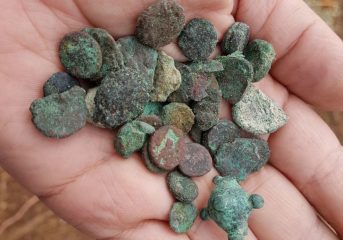
A man was arrested in a Beduin village of Bir Hadaj, South Israel, for illegally looting more than 150 Byzantine-era coins from numerous nearby archaeological sites.

A man was arrested in a Beduin village of Bir Hadaj, South Israel, for illegally looting more than 150 Byzantine-era coins from numerous nearby archaeological sites.

Villagers digging up a pond have discovered an ancient stele depicting the Hindu god Narayana in Gorta village, Bogra, Bangladesh.
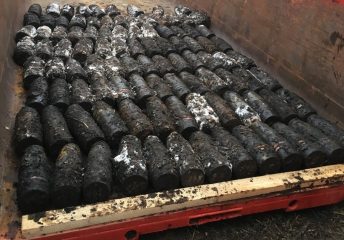
Amateur archaeologist uncovered bomb shells in Pääsküla bog on the outskirts of Tallinn, Estonia. It turned out that there were 167 and a half large-calibre artillery shells sunk at the site.

Renovation works led to discovery of a rectangular stone slab bearing an inscription of king Deva Raya II (1425–1446 AD) of the Vijayanagar Empire (1336–1646) at the Mahalingeshwara and Kalinga temple at Kalavara village, West India.
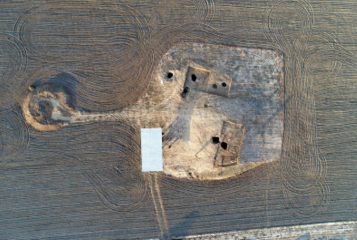
Archaeologists unearthed Islamic graves, pottery fragments, animal bones and other artefacts during research of the ancient city of Gorgan, North Iran.
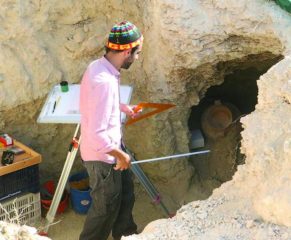
Roadworks in the community of Deneia in Nicosia, Cyprus, led to discovery of ancient tombs dating to the fifth century BC.
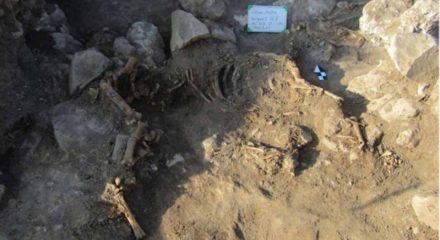
Archaeologists discovered a burials of three horses during excavations of the Kurgan of Abellou in East Azerbaijan Province, North-West Iran.
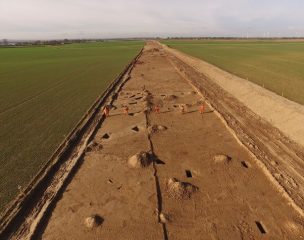
Archaeologists unearthed over 30000 artefacts at the future site of the world’s largest offshore wind farm near Grimsby, North East Lincolnshire, United Kingdom.
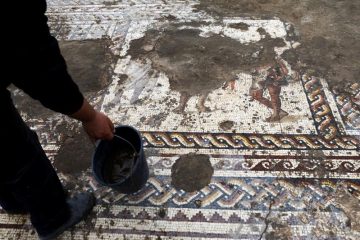
Archaeologists discovered a 1800-year-old mosaic dating back to the Roman era in the ancient city of Caesarea in West Israel.
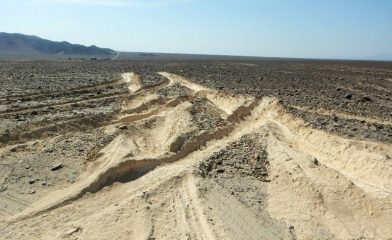
A driver accidentally drove through one of the the ancient Nazca lines in Peru, a UNESCO World Heritage site, damaging parts of the geoglyphs.

Researchers have found evidence that suggests the Toba volcanic eruption on Sumatra about 74000 years ago did not create a long volcanic winter effect in East Africa, neither did it cause a significant drop of human population at that time.
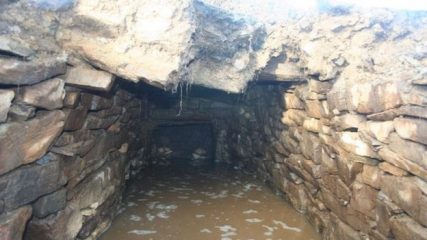
An underground chamber dating back 2000 years has been uncovered during work to build a house in Ness on the Isle of Lewis, Outer Hebrides, Scotland.
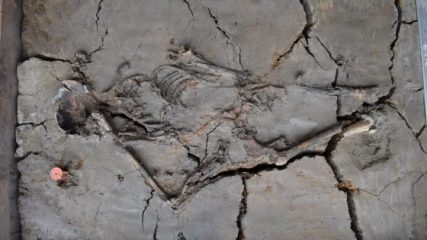
Possibly the oldest baby grave ever found in the Netherlands was discovered in Nieuwegein, containing the remains of an 6000-year-old infant in mother’s arms.
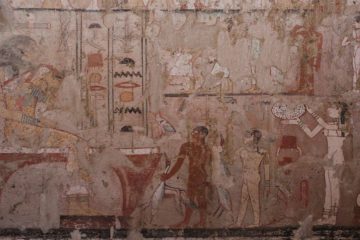
In a cemetery on the Giza Plateau, Egypt, archaeologists discovered a tomb of a female senior official in the royal palace. The site dates back 4300 years.

Remains of a previously unknown Roman building have been discovered during building work on a new school building at Banbury Road in Warwick, United Kingdom.
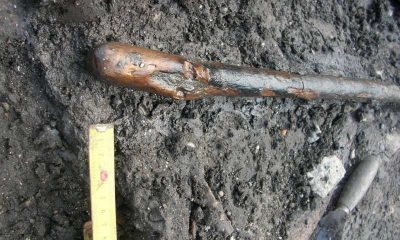
Archaeologists unearthed 171000-year-old tools attributed to the Neanderthals at Poggetti Vecchi, Grosseto, Central Italy. The findings provide evidence that the Neanderthals used fire to craft them.
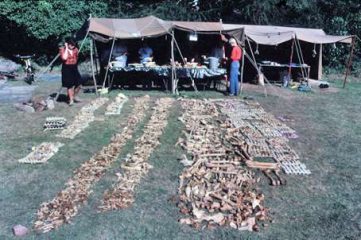
Radiocarbon dating of the mass grave discovered at the site of the Viking camp at Repton, Derbyshire, revealed that the bones date back to the Viking age.
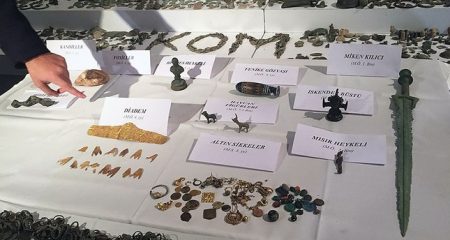
Turkish Police has seized 26456 smuggled artefacts in the biggest operation against artefact smugglers spanning through four cities.
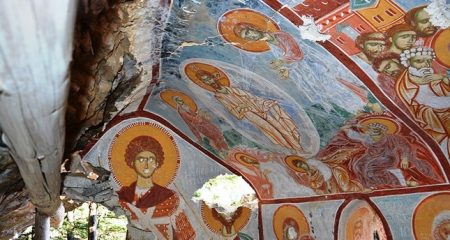
A chapel that was accessible only through a hidden passage has been discovered during restoration works of the Sümela Monastery in Trabzon Province, North Turkey.
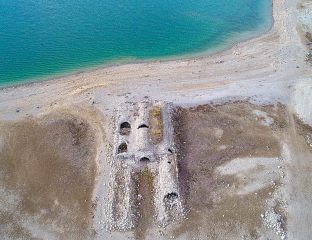
Drought causes the ruins of a 816-year-old Seljuk inn to emerge from the waters of the Altınapa dam, Konya Province, Central Turkey.